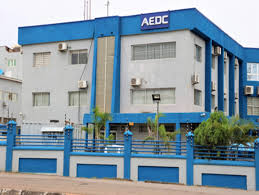No Mercy: Survivor Recounts RSF Mass Killings in Sudan’s El-Fasher as Thousands Flee Amid Atrocities

Thousands of civilians remain trapped in el-Fasher, Sudan, as harrowing accounts emerge of mass killings carried out by the Rapid Support Forces (RSF) following their capture of the city on October 26. Survivors describe scenes of horror, accusing the paramilitary group of executing civilians “without mercy” in what humanitarian officials warn may amount to ethnic cleansing.
For 550 days, Abubakr Ahmed, a 29-year-old fighter in the city’s “popular resistance” unit, battled alongside the army to defend el-Fasher — the last government stronghold in Darfur. But when the army surrendered and withdrew under a deal it claimed was meant to prevent a bloodbath, tens of thousands of civilians were left behind. “The RSF killed civilians and left their corpses in the streets,” Ahmed told Al Jazeera after escaping. “They were killed without mercy.”
According to Sudan’s Doctors’ Network, the RSF killed at least 1,500 people in the first three days after seizing control, including 460 patients and companions at al-Saud hospital — a figure also verified by the World Health Organization (WHO). Videos authenticated by Al Jazeera’s Sanad unit show RSF troops standing over piles of bodies and executing unarmed men.
More than 33,000 people have already fled to nearby towns like Tawila and Tine, but most civilians remain trapped, hiding from RSF patrols. Those escaping face a perilous journey through the desert with little food or water. “The majority of people won’t stay in el-Fasher because they are terrified of the RSF,” said one survivor, Mohammed, who arrived in Tawila on October 28. “They don’t trust them. The Arabs will live in one place and the non-Arabs in another — that’s just the way it is now.”
The Yale Humanitarian Research Lab (HRL) reported evidence of “mass killings” as people attempted to flee the city, warning that current death estimates are likely undercounted. UNICEF’s Sudan representative, Sheldon Yett, described el-Fasher as “killing fields,” drawing parallels to the Rwandan genocide. “The kind of slaughter we are seeing, and the pride [the perpetrators] have in killing innocent people, is what scares me,” he said.
Aid efforts have nearly collapsed as RSF fighters target local relief workers, accusing them of collaborating with the army. UNICEF has lost contact with many of its community partners, including those running food kitchens. “Many are on the move and hiding, and they’re afraid,” Yett said.
International outrage has followed the massacre, with the UN, United States, and European Union issuing condemnations and urging the RSF to protect civilians. However, analysts and survivors accuse the global community of failing to act before the atrocities unfolded. “This is a case of refusal and betrayal by the international community,” said Sudan expert Hamid Khalafallah. “They didn’t do anything serious to protect civilians.”
Human Rights Watch researcher Jean-Baptiste Gallopin said the RSF’s actions in el-Fasher mirror previous atrocities in el-Geneina and Ardamata, warning that impunity has emboldened RSF leader Mohamed Hamdan “Hemedti” Dagalo. “Diplomats are focused on getting to an elusive ceasefire, but by avoiding sanctions or accountability, they’ve effectively washed their hands of the atrocities that occur,” Gallopin said.
The fall of el-Fasher marks one of the bloodiest chapters in Sudan’s two-and-a-half-year civil war — and leaves Darfur’s civilians once again at the mercy of militias accused of genocide two decades ago.



